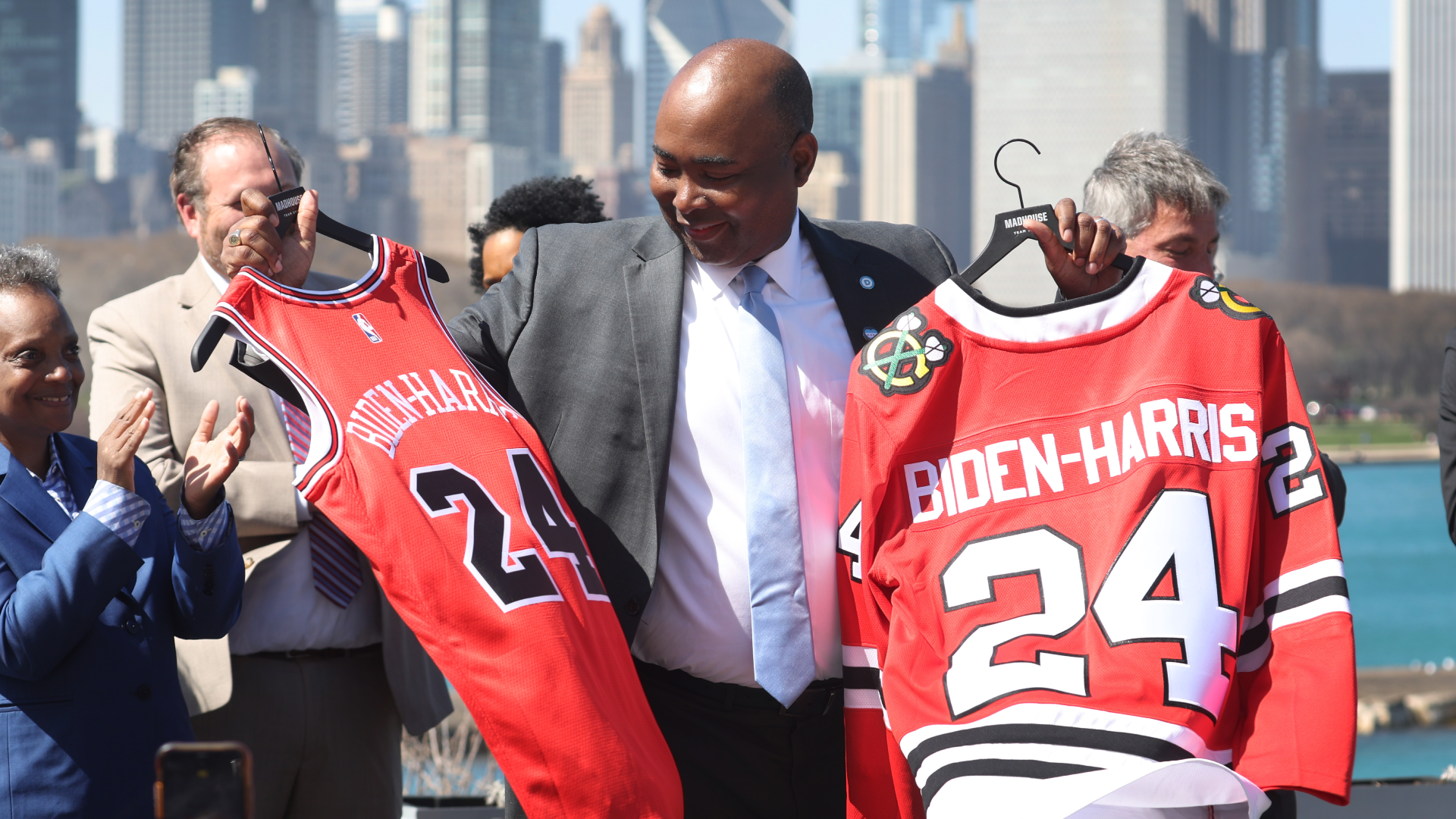Last-Minute Bid to Fight Democratic Dark Money at DNC

DNC Chair Jaime Harrison at an April 12, 2023, news conference in Chicago announcing the city as the site of the party's 2024 national convention.
(Scott Olson/Getty)
The push to ban the use of dark money in Democratic primaries is still alive, according to a progressive member of the Democratic National Committee (DNC).
DNC Delegate Jeri Shepherd told TYT that on Thursday, the deadline, she submitted a resolution against dark money for consideration during the committee’s bi-annual meeting next month.
As TYT reported on Tuesday, progressives who have pushed DNC dark-money bans believed that their cause was dead for now. Our Revolution Board Chair and DNC Superdelegate Larry Cohen told TYT that reintroducing a dark money resolution was “not likely” because the “result would be the same.” Cohen noted at the time, however, that any individual DNC delegate could submit a resolution.
And that’s what Shepherd just did.
Shepherd is an attorney from Colorado and first became a DNC delegate in 2016. She’s part of a progressive group of DNC reformers that failed twice to get a vote on a resolution to ban dark money – in February and last September. This time, she’s submitted a dark money resolution on her own.
Part of Shepherd’s resolution calls for Congress to develop constitutional amendments to overturn the Supreme Court’s 2010 Citizens United ruling, which allows corporations and unions to spend unlimited amounts of money on ad campaigns for or against political candidates. Other elements of the resolution would discourage the spending of dark money in Democratic primaries.
“Dark money is a very real concern because of the real threat to democracy, the survival of our planet, and the survival of people,” Shepherd said in a text. “We are heading in a very dangerous direction; dark money clears the path for fascism.”
Shepherd said that while the progressive bloc of DNC delegates had discussed the possibility of reintroducing their dark money ban as a group, firm plans to do so never materialized.
As TYT reported, Cohen and other progressives blame Pres. Joe Biden’s influence over the DNC for the dark-money ban’s previous failures to get past the DNC’s Resolutions Committee. The committee chooses which proposed resolutions will get debate and a vote.
Massive amounts of dark money, the donors of which are not disclosed, have been used to undermine the primary campaigns of progressive candidates. And a large portion of dark money contributions to political action committees (PACs) supporting Democrats has come from right-wing donors, often tipping the scales in favor of establishment Democratic candidates.
Last year, the DNC adopted a resolution calling on Congress to pass the Disclose Act and pledging its support for banning corporate PACs that accept dark money from donating to candidates and to bar lobbyists from donating to or fundraising for anyone they lobby. But a separate resolution for the DNC to investigate dark-money spending in primaries, and impose disciplinary action, failed to reach a vote.
Biden previously supported legislation to disclose the biggest dark-money donors. But that bill failed to get support from the GOP. PACs supporting Biden got $145 million in dark money during his run for president in 2020.
PACs supporting other Democrats got nearly $500 million in dark money during the 2020 election cycle – more than twice the amount that boosted Republicans – according to reporting by the campaign-finance tracking site OpenSecrets.org. But some of that Democratic dark money has gone to thwart progressive Democratic challengers within the party.
Shepherd says that she expects to speak with the other progressive DNC delegates about her dark money resolution in the coming days.
The DNC’s next meeting takes place Oct. 5-7 in St. Louis.
TYT Washington Correspondent Candice Cole was previously a correspondent and senior White House producer for the Black News Channel and has worked at a number of local news outlets. You can find her on Twitter @CandiceColeNews.
